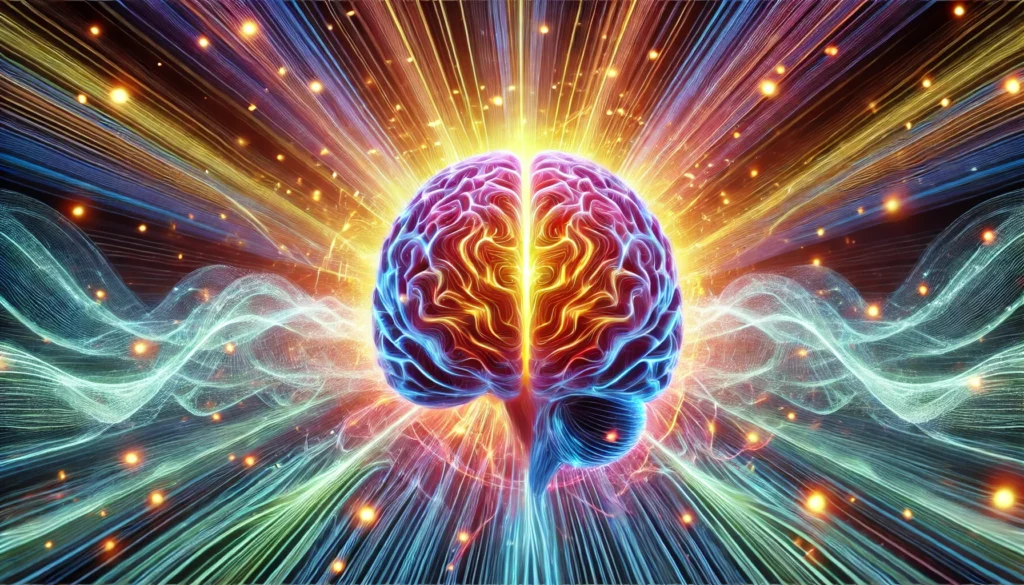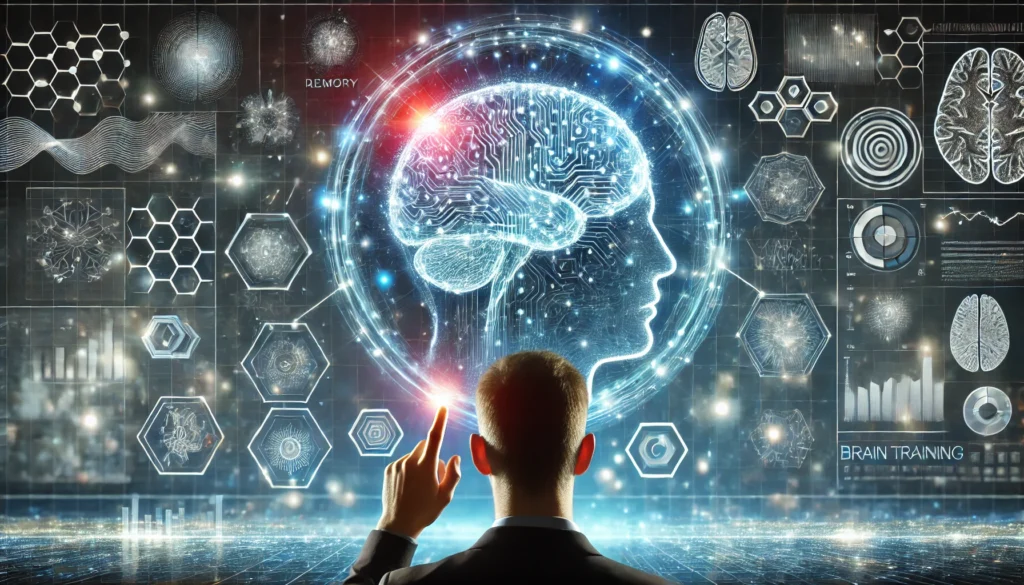The Science Behind Memory and Cognitive Function
Memory is a fundamental aspect of cognitive function, influencing our ability to learn, problem-solve, and retain essential information. The brain’s ability to encode, store, and retrieve memories depends on the strength of neural pathways, which can be reinforced through targeted mental exercises. Brain games to increase memory are designed to challenge cognitive abilities, encouraging neuroplasticity and enhancing recall efficiency. Studies in cognitive neuroscience suggest that engaging in structured memory exercises can improve both short-term and long-term recall. Strengthening these neural connections through purposeful stimulation ensures a sharper mind and a more resilient memory.
You may also like: “Boost Your Memory & Recall: The Best Brain Training for Neural Pathway Strengthening”
The Role of Brain Games in Strengthening Neural Pathways
Playing brain games memory exercises the brain much like physical training strengthens muscles. These games stimulate different cognitive functions, including pattern recognition, spatial awareness, and logical reasoning. Games to increase memory and concentration work by activating the hippocampus and prefrontal cortex, essential regions for cognitive processing and decision-making. Regular exposure to memory strengthening games enhances problem-solving skills, helping individuals recall details more effectively. By integrating these exercises into daily routines, individuals can fortify their mental agility and reinforce crucial memory pathways.

Memory Exercises for Enhanced Cognitive Function
Effective memory exercises engage multiple brain regions simultaneously, ensuring comprehensive cognitive stimulation. Memory improvement games such as recall challenges, number sequences, and word associations train the brain to retrieve information more efficiently. Games to stimulate memory often incorporate adaptive difficulty levels, gradually increasing complexity to maintain engagement and cognitive challenge. Strengthening memory games that encourage visualization techniques, such as memory palaces, enhance associative recall. Through repetition and strategic engagement, these exercises help retain critical information and improve cognitive longevity.
The Best Games to Boost Your Memory and Mental Agility
Choosing the right games to help memory is essential for maximizing cognitive benefits. The best memory games for adults include logic puzzles, spatial reasoning challenges, and word association exercises. Fun games to help with brain development include board games like chess and Scrabble, which enhance strategic thinking and pattern recognition. Additionally, memory enhancing games that incorporate timed challenges improve cognitive flexibility, ensuring quicker recall and decision-making. Brain training programs designed with evidence-based strategies provide personalized exercises tailored to specific cognitive needs. By integrating these games into everyday activities, individuals can experience significant improvements in both memory and focus.

Frequently Asked Questions (FAQ) About Brain Games to Increase Memory and Strengthen Neural Pathways
1. How do brain games to increase memory impact long-term cognitive health?
Engaging in brain games to increase memory consistently has a lasting impact on cognitive resilience, reducing the likelihood of age-related memory decline. By regularly challenging the brain through structured memory exercises, individuals strengthen neural pathways, making recall more efficient. These games not only improve immediate memory retention but also contribute to long-term neuroplasticity, which helps the brain adapt to new information even in later years. Studies indicate that participating in memory improvement games can delay symptoms of cognitive disorders such as dementia and Alzheimer’s disease. A well-rounded approach, combining games to stimulate memory with lifestyle habits such as proper nutrition and physical activity, further enhances brain health over time.
2. What are the benefits of fun games to help with brain development in children and adults?
Fun games to help with brain development are beneficial for all age groups, supporting learning, problem-solving, and critical thinking skills. For children, these games improve pattern recognition, logical reasoning, and linguistic abilities, laying a strong foundation for academic success. Adults benefit from memory strengthening games that reinforce recall speed, decision-making, and strategic thinking, all of which are critical for workplace efficiency. Additionally, interactive memory games to improve memory enhance social skills when played in a group setting, fostering communication and cooperation. By incorporating fun yet challenging cognitive exercises into daily routines, individuals of all ages can improve their mental agility and adaptability.
3. How can memory exercises help individuals with attention difficulties?
Memory exercises are particularly useful for individuals who struggle with attention difficulties, such as those with ADHD or high cognitive load professions. These exercises train the brain to focus for longer periods by reinforcing cognitive endurance and selective attention. Games to improve memory and concentration often involve tasks that require individuals to filter distractions and retain relevant information, strengthening their executive function. Additionally, structured games to increase memory can help improve impulse control and problem-solving by reinforcing the ability to evaluate multiple outcomes before making decisions. Over time, these exercises enhance both memory retention and sustained attention, benefiting academic, professional, and everyday activities.
4. What distinguishes memory enhancing games from standard puzzle games?
While traditional puzzles provide cognitive stimulation, memory enhancing games are specifically designed to reinforce recall abilities and strengthen neural connectivity. These games employ techniques such as spaced repetition, association-based learning, and sequential recall to improve memory encoding and retrieval. Brain games to boost memory often involve interactive elements, such as timed challenges or pattern-based tasks, which push the brain to recognize and retain information more efficiently. Unlike standard puzzles, which may primarily target problem-solving skills, games to keep your brain sharp focus on strengthening both working and long-term memory. This targeted approach ensures that players experience measurable cognitive improvements over time.
5. Are apps that increase memory as effective as physical games for cognitive improvement?
Apps that increase memory provide a convenient and accessible way to engage in structured brain training programs, often offering personalized challenges that adapt to user performance. These digital platforms leverage artificial intelligence and data analytics to track progress, adjusting the difficulty of memory game app exercises to match an individual’s skill level. While physical games, such as chess and card-based memory strengthening games, enhance tactile learning and social interaction, digital apps provide the advantage of portability and consistency. Many apps also include built-in reminders and adaptive feedback, helping users remain engaged in their cognitive development over time. The most effective approach combines both digital and physical memory exercises to maximize cognitive benefits.
6. What are the best games for memory improvement in older adults?
The best memory games for adults seeking cognitive improvement often involve strategic thinking, pattern recognition, and multitasking. Games such as Sudoku and crossword puzzles provide cognitive challenges that enhance verbal and numerical recall. Strengthen memory games like bridge or mahjong stimulate social interaction while reinforcing critical memory processes. Memory and concentration games that incorporate visual cues, such as jigsaw puzzles, further support brain connectivity by improving spatial reasoning. Consistently engaging in these activities, especially when paired with other cognitive training methods, helps adults maintain mental sharpness and recall abilities well into later years.
7. Can brain games to increase memory improve academic performance in students?
Yes, brain games memory exercises can significantly improve academic performance by enhancing concentration, recall speed, and problem-solving abilities. Students who regularly engage in memory improvement games develop stronger working memory, allowing them to retain and process information more efficiently. Games to boost your memory that focus on sequential learning and pattern recognition improve comprehension skills, particularly in subjects such as math and science. Additionally, memory and concentration games that involve verbal association enhance language skills, aiding in faster reading and more effective communication. By incorporating these cognitive exercises into study routines, students can strengthen their overall academic performance and retention rates.
8. How can memory strengthening games be adapted for individuals with cognitive impairments?
Memory strengthening games can be tailored for individuals with cognitive impairments by adjusting difficulty levels, incorporating multisensory elements, and emphasizing repetition-based learning. Games to improve memory and concentration that involve visual, auditory, and tactile elements ensure engagement across multiple cognitive channels. Memory game app platforms often include customization options, allowing users to progress at their own pace without feeling overwhelmed. Caregivers and educators can facilitate participation by using structured guidance and positive reinforcement to maintain motivation. When integrated into daily routines, these adapted cognitive activities can improve recall function and slow the progression of cognitive decline.
9. What are the advantages of using brain training programs over standalone games?
Brain training programs offer a more structured and scientifically designed approach to cognitive enhancement than standalone games. These programs utilize progressive difficulty scaling, data-driven feedback, and comprehensive cognitive assessments to personalize training experiences. Games to stimulate memory within structured programs target specific neural pathways, ensuring well-rounded cognitive development. Unlike standalone games that may focus on isolated skills, comprehensive training programs integrate memory exercises, problem-solving challenges, and adaptive learning strategies. The long-term benefits of such programs include measurable cognitive improvements, increased mental resilience, and enhanced learning efficiency.
10. How frequently should one engage in brain games to keep your brain sharp?
To achieve optimal cognitive benefits, individuals should engage in brain games to keep your brain sharp for at least 15–30 minutes daily. Consistency is key, as regular participation in memory and concentration games ensures sustained cognitive engagement and neural reinforcement. Games to increase memory and concentration that progressively increase in difficulty provide ongoing mental challenges, preventing cognitive plateau. Alternating between different types of memory-enhancing games, such as logic puzzles, recall-based exercises, and strategic board games, keeps brain stimulation diverse and effective. When combined with a healthy lifestyle, including proper nutrition, physical activity, and social engagement, memory games contribute to long-term cognitive health and mental agility.

Conclusion: Integrating Brain Training into Daily Life
Engaging in memory and concentration games is an effective strategy for improving cognitive resilience and long-term brain health. Regular participation in brain games to boost memory ensures that neural pathways remain active and adaptable, reducing cognitive decline. Apps that increase memory offer digital solutions for consistent cognitive training, making brain exercises accessible anytime. Whether through traditional puzzles, digital memory game apps, or structured brain training programs, cognitive engagement plays a crucial role in maintaining mental sharpness. By incorporating brain games to increase memory into daily routines, individuals can cultivate enhanced recall, greater focus, and sustained cognitive well-being.
Further Reading:
4 ways to improve focus and memory
25 Ways to Improve Your Memory
10 Foods that Improve Memory and Focus!
Important Note: The information contained in this article is for general informational purposes only, and should not be construed as health or medical advice, nor is it intended to diagnose, prevent, treat, or cure any disease or health condition. Before embarking on any diet, fitness regimen, or program of nutritional supplementation, it is advisable to consult your healthcare professional in order to determine its safety and probable efficacy in terms of your individual state of health.
Regarding Nutritional Supplements Or Other Non-Prescription Health Products: If any nutritional supplements or other non-prescription health products are mentioned in the foregoing article, any claims or statements made about them have not been evaluated by the U.S. Food and Drug Administration, and such nutritional supplements or other health products are not intended to diagnose, treat, cure, or prevent any disease.


